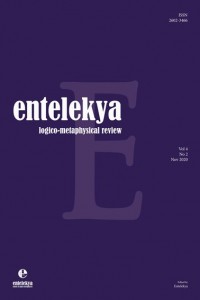Abstract
References
- Alexander of Aphrodisias. “Maqāla al-Iskandar al-Afrūdīsī fī al-Ashyā al-ʻĀmmiyya al-Kulliyya wa Annahā Laysat bi-Aʻyān Qāima.” Ar. trans. Anonymous. Zwei Arabische Fassungen der Abhandlung des Alexander von Aphrodisias Über die Universalia. Ed. Hans-Jochen Ruland. Göttingen: Vandenhoeck & Ruprecht, 1979: 254-9..
Abstract
Alexander's views on universals are, it seems, quite important in the history of western philosophy. When Boethius gives in his second commentary on Porphyry's Isagoge his solution to the problem of universals as he conceived it, he claims to be adopting Alexander's approach. If true, this means that the locus classicus for all western medieval thinkers on this topic is really a rendering of Alexander's teaching. Alexander commented Aristotle’s statement in his On the Soul “The universal animal either is nothing at all or is posterior if it exists” (402b8), and this commentary has been translated into Arabic several times in the classical period. In this study the anonymous Arabic translations of Alexander’s commentary has been translated into English.
Keywords
References
- Alexander of Aphrodisias. “Maqāla al-Iskandar al-Afrūdīsī fī al-Ashyā al-ʻĀmmiyya al-Kulliyya wa Annahā Laysat bi-Aʻyān Qāima.” Ar. trans. Anonymous. Zwei Arabische Fassungen der Abhandlung des Alexander von Aphrodisias Über die Universalia. Ed. Hans-Jochen Ruland. Göttingen: Vandenhoeck & Ruprecht, 1979: 254-9..
Details
| Primary Language | English |
|---|---|
| Subjects | Philosophy |
| Journal Section | Entelechy |
| Authors | |
| Translators |
İ̇lyas Altuner This is me |
| Publication Date | November 30, 2020 |
| Published in Issue | Year 2020 Volume: 4 Issue: 2 |

